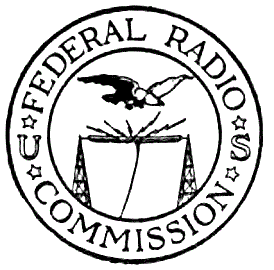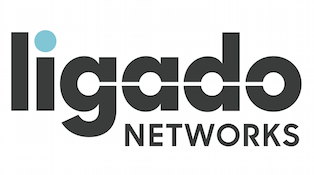 W
WThe Federal Communications Commission (FCC) is an independent agency of the United States government that regulates communications by radio, television, wire, satellite, and cable across the United States. The FCC maintains jurisdiction over the areas of broadband access, fair competition, radio frequency use, media responsibility, public safety, and homeland security.
 W
W9-1-1, also written 911, is an emergency telephone number for the North American Numbering Plan (NANP), one of eight N11 codes. Like other emergency numbers around the world, this number is intended for use in emergency circumstances only, and using it for any other purpose is a crime in most jurisdictions.
 W
WThe Communications Act of 1934 is a United States federal law signed by President Franklin D. Roosevelt on June 19, 1934 and codified as Chapter 5 of Title 47 of the United States Code, 47 U.S.C. § 151 et seq. The Act replaced the Federal Radio Commission with the Federal Communications Commission (FCC). It also transferred regulation of interstate telephone services from the Interstate Commerce Commission to the FCC.
 W
WThe Telecommunications Act of 1996 was the first significant overhaul of telecommunications law in more than sixty years, amending the Communications Act of 1934. The Act, signed by President Bill Clinton, represented a major change in American telecommunication law, since it was the first time that the Internet was included in broadcasting and spectrum allotment.
 W
WThe Carterfone is a device invented by Thomas Carter. It manually connects a two-way radio system to the telephone system, allowing someone on the radio to talk to someone on the phone. This makes it a direct predecessor to today's autopatch.
 W
WThe Children's Internet Protection Act (CIPA) is one of a number of bills that the United States Congress proposed to limit children's exposure to pornography and explicit content online.
 W
WThe FCC logo or the FCC mark is a voluntary mark employed on electronic products manufactured or sold in the United States which indicates that the electromagnetic radiation from the device is below the limits specified by the Federal Communications Commission and the manufacturer has followed the requirements of the Supplier's Declaration of Conformity authorization procedures. The FCC label is found even on products sold outside the US territory, because they are either products manufactured in the US and had been exported, or they are also sold in the US. This makes the FCC label recognizable worldwide even to people to whom the name of the agency is not familiar.
 W
WThe Federal Communications Commission Consolidated Reporting Act of 2013 is a bill that passed the United States House of Representatives during the 113th United States Congress. The bill would "require the Federal Communications Commission (FCC) to prepare a biennial report for the Congress that assesses certain characteristics of the communications industry." That report would include an analysis of "the state of competition in the markets for voice, video, and data services, as well as the availability of high-speed and high-quality telecommunications services" in the United States. Perhaps most importantly, "the bill would require the FCC to determine whether laws and regulations pose a barrier to entry into communications markets and to include that information in the biennial report." The bill would also cancel a number of preexisting requirements for various other reports from the FCC.
 W
WThe Federal Communications Commission Process Reform Act of 2013 is a bill that would make a number of changes to procedures that the Federal Communications Commission (FCC) follows in its rulemaking processes. The FCC would have to act in a more transparent way as a result of this bill, forced to accept public input about regulations. Although the FCC would be allowed to decide on its own transparency guidelines, it would have to report annually on how well it was meeting those guidelines. The FCC would also have to provide notice about rules it was writing and allow for comment.
 W
WThe Federal Radio Commission (FRC) was a government agency that regulated United States radio communication from its creation in 1927 until 1934, when it was succeeded by the Federal Communications Commission (FCC). The FRC was established by the Radio Act of 1927, which replaced the Radio Act of 1912 after the earlier law was found to lack sufficient oversight provisions, especially for regulating broadcasting stations. In addition to increased regulatory powers, the FRC introduced the standard that, in order to receive a license, a radio station had to be shown to be "in the public interest, convenience, or necessity".
 W
WGovernment-access television (GATV) is a type of specialty television channel created by government entities and broadcast over cable TV systems or, in some cases, over-the-air broadcast television stations. GATV programming generally deals with public affairs, board meetings, explanation of government services, and other public-service related programming such as public service announcements and longer public information films.
 W
WLigado Networks, formerly known as LightSquared, is an American satellite communications company.
 W
WThe Local Community Radio Act is an act of broadcast law in the United States, explicitly authorizing the Federal Communications Commission (FCC) to license local low-power broadcasting in the FM broadcast band (LPFM). After five years and four versions, it passed the U.S. Congress in 2010, granting equal protection to community radio stations with regard to translator and booster stations. All three types of stations remain secondary to full-power radio stations, which are typically owned by major corporations and nonprofits. The act negates the Radio Broadcasting Preservation Act of 2000, which enacted prevented community LPFM stations on the basis of RF interference.
 W
WThe seven dirty words are seven English-language curse words that American comedian George Carlin first listed in his 1972 "Seven Words You Can Never Say on Television" monologue. The words, in the order Carlin listed them, are "shit", "piss", "fuck", "cunt", "cocksucker", "motherfucker", and "tits".
 W
WThe STELA Reauthorization Act of 2014 is a bill related to the regulation of satellite broadcasting in the United States.
 W
WBetween 1990 and 2004, the Federal Communications Commission (FCC) issued fines totalling $2.5 million to radio licensees for airing material it deemed indecent from The Howard Stern Show, the highest amount of any American radio show. The Supreme Court had provided broadcasting guidelines for indecent material in its 1978 ruling in its landmark decision, in which the court prohibited the "seven dirty words" made famous by comedian George Carlin. The FCC had received complaints about Howard Stern as early as 1981, but its limited power at the time prevented further action taking place.